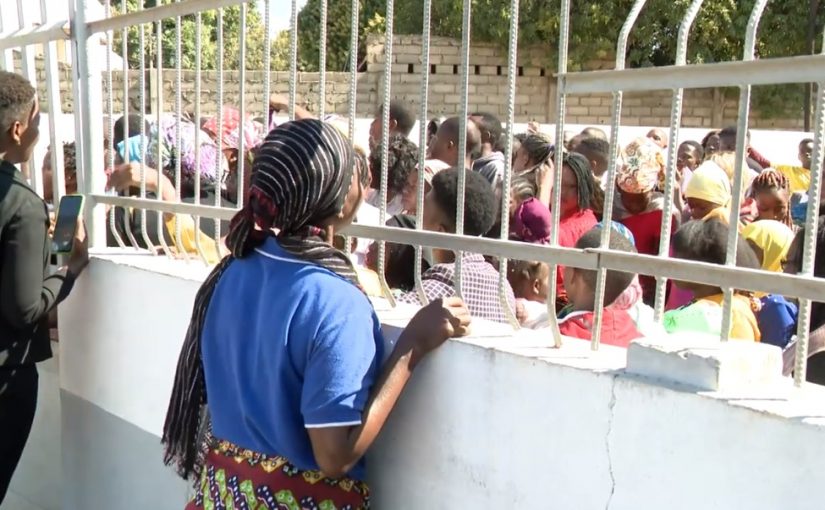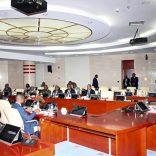Mozambique: President Chapo concludes two-day visit to Rwanda - Photos
Mozambique: ‘Mais Integridade’ calls for independent audit of voter registration

FILE - For illustration purposes only. [File photo: TVM]
“Mais Integridade” (“More Integrity”), the consortium of civil society bodies monitoring the Mozambican municipal elections scheduled for 11 October, has called for an independent audit of the provisional data from the scandal-ridden voter registration, that ran from 20 April to 3 June.
In a release summarizing a webinar on the registration held on 15 June, Mais Integridade recommended that an audit be held before the final validation of the data from the registration.
The coalition also called for criminal proceedings against those responsible for the irregularities recorded during the registration “as a way of discouraging this kind of behaviour”.
The main crimes and irregularities that took place during the registration, according to speakers at the webinar, included “the deliberate exclusion of potential voters regarded as supporters of opposition parties, in schemes which involve supposed equipment breakdowns”.
These alleged breakdowns particularly affected areas regarded as strongholds of the main opposition parties, Renamo and the MDM (Mozambique Democratic Movement), such as Gurue, Milange and Alto Molocue districts, in Zambezia province, Marromeu. Caia, Nhamatanda and Beira city, in Sofala, Mandimba and Cuamba in Niassa, and almost all the municipalities in Nampula province.
The blocking of potential opposition voters, the release said, involved local leaders of the electoral bodies. The most flagrant case was in Beira where the district director of STAE (Electoral Administration Technical Secretariat) used an illicit WhatsApp group to give instructions to registration post supervisors, ordering them to hinder the registration of citizens believed to be opposition supporters.
But for voters who supported the ruling Frelimo party, claimed speakers at the webinar, “priority lists” were created allowing them to jump the queues at the registration posts.
Other irregularities noted included mobilization of citizens living outside the municipal areas, and therefore not legally eligible to vote; the issuing of voter cards at dead of night, and outside the official registration posts, and attempts to block independent observation of the registration, sometimes on the instruction of local leaders of the electoral bodies.
These and other irregularities, said the Mais Integridade release, contributed to the exclusion of thousands of Mozambicans from the registration, thus preventing them from exercising their right to vote in the October elections.
Even keeping the registration posts open into the night on the last two days of registration did not prevent the exclusion of large numbers of potential voters.
Furthermore, those who committed the irregularities have so far not been held responsible for their actions. This, the release said, “leads to a sense of impunity, which encourages this type of crime”.
Speakers at the webinar warned that “a problematic voter registration such as this one risks discrediting the elections”. The registration was thus “a bad omen for the elections”.
The webinar “while it recognized the scheme of the ruling party to corrupt the registration, also stressed the weaknesses of the opposition” which in many cases did not monitor and document abuses, and use the legal avenues for appeal.
During the 45 days of registration, 69 observers from the Mais Integridade consortium witnessed the registration of about 62,000 voters in more than 4,200 visits to 918 registration posts in 27 out of the 65 municipalities. The consortium thus covered about 50 per cent of all the registration posts.
The consortium was set up in 2022 with the goal of contributing to the transparency and integrity of the 2023-2024 electoral cycle, producing credible public information and analyses about the various stages in the process.












Leave a Reply
Be the First to Comment!
You must be logged in to post a comment.
You must be logged in to post a comment.